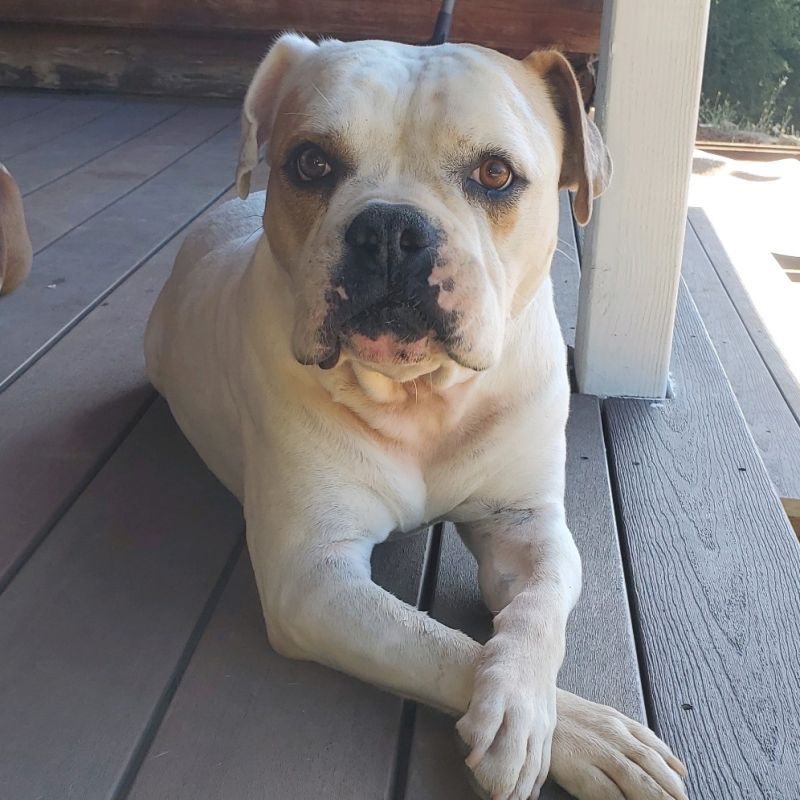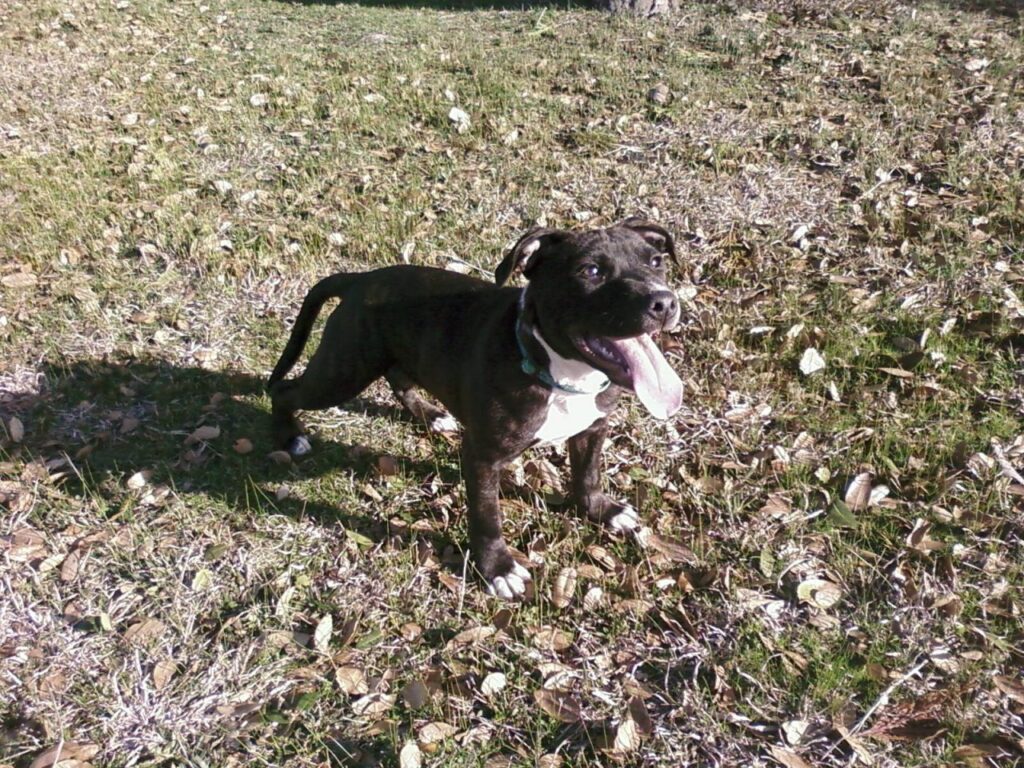At Ridley K-9 Academy we understand the importance of picking the correct dog or puppy to live with you in your home. When we have a litter of Ridley American Bulldogs puppies we take it upon ourselves to temperament test the puppies at 8 weeks old. This allows us to better understand and pick the puppy for each owner.
We believe you can evaluate each puppy’s genetic temperament very accurately at 8 weeks old. Of course the puppy’s environment and training can and will change the dogs behavior. However, the temperament you see at 8 weeks old is going to be the same at 2 years old when the dog is fully matured. No mater how good or bad the environment has been.

A temperament evaluation can also help you when choosing a mature dog. You do have to take into account the dogs past environment. When giving a grown dog a temperament evaluation there are things you cannot account for. However, you will be able to read the dogs emotion behind the behavior. This will help you determine what each dog’s temperament truly is.
Below you will find temperament evaluation test for puppies and grown dogs. All tests should be given in a brand new environment and given by a stranger (you).
Puppy Temperament Evaluation:
- Social Attraction: Degree of social attraction shows confidence or dependence the puppy is.
- Following: Degree of following attraction shows how attracted and dependent the puppy is. Not following indicates independence.
- Restraint: Degree of dominant or submissive tendency. Shows how the puppy accepts stress when socially and or physically dominated.
- Social Dominance: Degree of acceptance / forgiveness after being dominated. Shows how socially dominant the pup is. Shows if the pup is pushy for affection.
- Elevation Dominance: Degree of acceptance, shows how dominate the pup is while in position of no control.
- Retrieving: Degree of willingness to work with a human. Shows how much the pup wants to work for you. High correlation between ability to retrieve and successful guild dogs, Obedience dogs & field trial dogs
- Touch Sensitivity: Degree of sensitivity to touch. Shows the dogs’ natural reaction to pain. Used to show what level the handler will need to correct (discipline) the dog. And what kind of tool you will need to use.
- Sound Sensitivity: Degree of sensitivity to sound. (Also a rudimentary test for deafness) This test shows the pups nerves and tells you how the dog will react to loud sounds.(i.e. thunder and backfires and gunshots)
- Stability: Degree of intelligent, curiosity, response to strange object. Shows startle affect and recovery time as well as nerves.
- Sight Sensitivity: Degree of intelligent response to strange object. Shows if the puppy can overcome and recover from the fear of the stability test through drive. (this is very important for a working dog) Shows the level of natural prey drive in puppy.
Grown Dog Evaluation:
- Social Attraction: Degree of social attraction. Shows how confidence or dependence the dog is.
- Leash test (following & restraint test): Degree of acceptance, dependence or independence. Shows how attracted and dependent the dog is.
- Sound Sensitivity: Degree of sensitivity to sound. (Also a rudimentary test for deafness) This test shows the pups nerves and tells you how the dog will react to loud sounds.(i.e. thunder and backfires and gunshots)
- Social Dominance: Degree of acceptance / forgiveness after being after having valuable object taken away. Shows how pushy the dog is for affection.
- Reaction to Toys: Degree of play drive. Also shows how pushy the dog is with their toy.
- Possession test: Degree of acceptance. Shows how bad the dog wants their toy. This test will also show if the dog has possession aggressive over valuable objects.
- Retrieving: Degree of willingness to work with a human. Shows how much the dog wants to work for you.
- Sight Sensitivity: Degree of intelligent response to strange object. Shows the level of natural prey and prey aggression the dog has. Can also tell you if the dog will chase cats or moving objects.
- Food Response: Degree of food motivation. Shows how willful the dog is to work for a treat. Makes it easier to train the dog.
You will notice how the two tests look very similar but are slightly different. If the tests are given correctly you will be able to make an educated pick that is based on the true temperament of the puppy or dog. When you know the true temperament of a puppy or dog you will know you have brought the correct dog home and into your life.
If you’re looking for a new puppy or dog and you would like professional help giving the temperament evaluation Ridley K-9 Academy is here to help. If you are a dog breeder and would like to have your litter evaluated please email or call 530-409-1879 today!
Garrett Ridley
